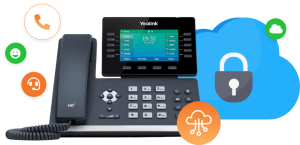
Voice over Internet Protocol (VoIP) systems are often offered for leased equipment agreements for several reasons, which can be beneficial for both VoIP service providers and their customers. Here are some of the key reasons why VoIP systems are commonly available through leasing agreements:
- Cost-Efficiency: Leasing VoIP equipment allows businesses to avoid the significant upfront capital expenditure typically associated with purchasing and installing a new phone system. Instead, they can spread the cost over a period, making it more budget-friendly and predictable.
- Access to Advanced Technology: VoIP technology evolves rapidly, with new features and capabilities continually emerging. Leasing enables businesses to stay up-to-date with the latest advancements in VoIP systems without the need for a large initial investment. This ensures that they have access to cutting-edge communication tools and can remain competitive.
- Scalability: Businesses’ communication needs can change over time due to growth or seasonal fluctuations. Leasing VoIP equipment offers the flexibility to easily scale up or down, adding or removing phone lines or features as required. This agility is crucial for adapting to evolving business demands.
- Maintenance and Support: Leasing agreements often include maintenance and technical support services. This means that if any issues arise with the VoIP equipment, the provider is responsible for repairs and troubleshooting. This can reduce the burden on the business’s IT department and ensure that the system remains operational.
- Predictable Costs: Leasing agreements typically provide predictable monthly expenses, which can simplify budgeting for businesses. With a fixed monthly lease payment, there are no unexpected repair or replacement costs, making it easier to manage finances.
- Tax Benefits: Depending on the jurisdiction and tax laws, leasing VoIP equipment may offer potential tax benefits. Lease payments are often considered operational expenses and may be tax-deductible, which can provide cost savings for businesses.
- Reduced Obsolescence Risk: Technology can become obsolete relatively quickly, especially in the IT and communication sectors. Leasing VoIP equipment shifts the risk of obsolescence from the business to the equipment provider. When the lease term ends, the business can typically upgrade to newer equipment without concern for disposing of outdated hardware.
- Faster Deployment: Leasing VoIP equipment often involves quicker deployment than purchasing and setting up a system from scratch. This can be especially advantageous for businesses that need to implement a new communication solution promptly.
- Testing and Evaluation: Leasing VoIP equipment allows businesses to test and evaluate the technology before committing to a long-term investment. This trial period can help ensure that the chosen VoIP system aligns with the organization’s specific needs and requirements.
- Minimal Administrative Burden: Leasing agreements are typically straightforward, with fewer administrative tasks compared to purchasing, such as tracking assets, managing warranties, and disposing of outdated equipment. This can simplify the overall management of the communication system.
- Cash Flow Management: Leasing VoIP equipment preserves capital for other strategic investments and operational expenses. Businesses can allocate their available funds to areas that directly impact growth and competitiveness while still benefiting from a reliable communication system.
In summary, leasing VoIP equipment offers businesses a range of advantages, including cost-efficiency, access to advanced technology, scalability, maintenance and support, predictable costs, tax benefits, reduced obsolescence risk, faster deployment, evaluation opportunities, minimal administrative burden, and improved cash flow management. These benefits make leasing an attractive option for businesses seeking to implement or upgrade their VoIP communication systems while optimizing their financial and operational resources.
